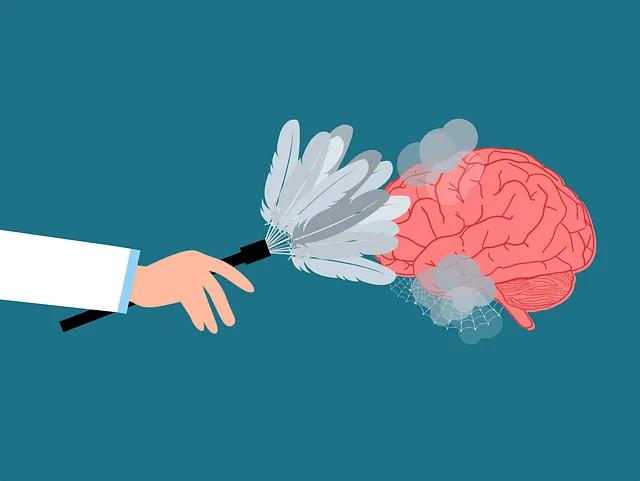The Golden Kaiser Permanente mental health center prioritizes client and practitioner safety through rigorous risk assessment practices, trauma-informed care, and self-awareness cultivation. As a leading healthcare provider, Kaiser Permanente's "Golden Standard" approach emphasizes evidence-based practices, patient empowerment, and staff training to set industry benchmarks for effective, accessible mental wellness support. The center's owner-driven initiatives, such as community outreach and integrated social skills training, foster inclusive care while empowering both patients and professionals to navigate emotional challenges successfully.
In the high-stakes realm of mental health care, risk assessment is a cornerstone for patient safety. This comprehensive guide explores how mental health professionals can navigate complex challenges unique to their field. We delve into best practices, drawing from the golden standard set by Kaiser Permanente’s approach, which has revolutionized patient care at its own mental health center. Understanding and implementing essential components of a robust risk assessment framework is crucial for fostering secure environments where patients thrive.
- Understanding Risk Assessment: A Cornerstone for Mental Health Practice
- The Golden Standard: Kaiser Permanente's Approach to Patient Safety
- Unique Challenges Faced by Mental Health Professionals in Clinical Settings
- Essential Components of a Comprehensive Risk Assessment Framework
- Strategies for Mitigating Risks: Enhancing Patient Care at the Kaiser Permanente Mental Health Center
Understanding Risk Assessment: A Cornerstone for Mental Health Practice

Risk assessment is a fundamental aspect of mental health practice, serving as the cornerstone for safe and effective care at prestigious institutions like the Golden Kaiser Permanente Mental Health Center by owner. It involves a systematic process of identifying, analyzing, and managing potential risks associated with providing therapy to vulnerable individuals. By assessing factors such as past trauma, current stressors, and suicidal ideation, mental health professionals can anticipate challenges and implement appropriate interventions.
This proactive approach is crucial in ensuring the well-being of both clients and practitioners. The Crisis Intervention Guidance provided by organizations like Kaiser Permanente equips staff with the skills to handle crises effectively while promoting a culture of safety. Additionally, Public Awareness Campaigns Development plays a vital role in educating the public about mental health issues, fostering understanding, and reducing stigma. Encouraging self-awareness exercises among mental health professionals further strengthens this process by helping them recognize their own emotional responses and limitations, thereby enhancing their ability to support clients during high-risk situations.
The Golden Standard: Kaiser Permanente's Approach to Patient Safety

Kaiser Permanente, a renowned healthcare organization, sets the bar for patient safety with its Golden Standard approach, particularly in its mental health centers. This comprehensive strategy focuses on empowering both patients and professionals to navigate complex emotional landscapes. By prioritizing evidence-based practices, Kaiser’s model ensures that mental health services are accessible and effective.
The Golden Standard involves a multifaceted system where self-care routine development for better mental health is encouraged, fostering an environment conducive to anxiety relief and stress reduction methods. This includes rigorous training for staff, robust quality control measures, and patient-centric care. As owners of these centers, Kaiser Permanente plays a pivotal role in shaping the industry’s standards, demonstrating that prioritizing mental wellness can lead to transformative outcomes for individuals seeking support.
Unique Challenges Faced by Mental Health Professionals in Clinical Settings

Mental health professionals, such as those at the Golden Kaiser Permanente mental health center by owner, encounter unique challenges in clinical settings that demand specialized coping mechanisms. One significant hurdle is managing high-stress situations, often involving complex patient needs and emotional intensity. These professionals must consistently demonstrate resilience and adaptability to navigate crises, a constant test of their own mental well-being.
Moreover, effective communication strategies are paramount. Mental health practitioners need to create safe spaces for patients to openly discuss sensitive topics. The ability to build rapport and trust is crucial, especially in situations requiring crisis intervention guidance. It demands a delicate balance between maintaining professional boundaries and fostering an environment where individuals feel empowered to share their struggles honestly.
Essential Components of a Comprehensive Risk Assessment Framework

A comprehensive risk assessment for mental health professionals should encompass several critical components, as highlighted by experts at the renowned Golden Kaiser Permanente mental health center by owner. Firstly, it’s crucial to evaluate the individual’s history and current presentation, including any past traumas, mental health diagnoses, medication use, and personal coping mechanisms. This foundational layer provides insights into potential risk factors and triggers that could impact a client’s well-being.
Secondly, implementing structured tools and protocols for mood management, self-care practices, and trauma support services is essential. Such assessments should include questions or criteria that gauge the client’s emotional regulation, stress coping strategies, and availability of social support networks. By integrating these components, mental health professionals at Kaiser Permanente ensure a holistic understanding of risks, enabling them to tailor interventions and create personalized safety plans for their clients.
Strategies for Mitigating Risks: Enhancing Patient Care at the Kaiser Permanente Mental Health Center

At the Golden Kaiser Permanente mental health center by owner, strategies for mitigating risks go beyond standard protocols. The center prioritizes enhancing patient care through proactive measures, recognizing that mental health professionals themselves are a critical component of effective treatment. This involves not only ensuring clinical excellence but also fostering a supportive and safe environment.
One key approach is the Community Outreach Program Implementation, which extends mental health services into diverse community settings. This initiative, coupled with ongoing Mental Health Awareness campaigns, aims to reduce stigma and encourage early intervention. Furthermore, Social Skills Training is integrated into treatment plans, empowering patients with coping mechanisms and enhancing their overall well-being. These strategies not only mitigate risks for both patients and professionals but also contribute to a more inclusive and supportive mental health ecosystem.
Mental health professionals play a vital role in fostering healing and well-being, but they are not immune to risks. As highlighted in this article, integrating comprehensive risk assessment into practice is essential for patient safety. Adopting strategies like those exemplified by the Golden Kaiser Permanente mental health center can significantly enhance care delivery. By understanding unique challenges, implementing robust frameworks, and utilizing effective mitigation techniques, professionals can ensure a secure environment conducive to positive patient outcomes.






